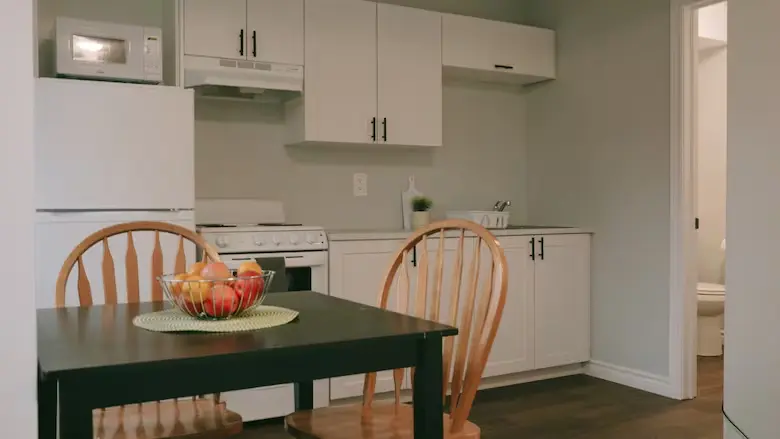Latest News
- Toronto mayor's popularity on the decline; half of the population is dissatisfied
- Heartbreaking accident in Markham; 61-year-old driver dies in two-car collision
- Brandon Ingram fined for throwing bottle in anger
- Cineplex's creative idea: "Surprise Mondays" to bring audiences back to the cinema
- More than 700 speed cameras to be removed in Ontario
Latest Ads
-
Jasmine Jewel
Call
-
Omidan group
Call
-
Amir Madanpour
Call
-
Dimo studio
Call
-
Yorkacademy
Call
-
Maryambagheri
Call
-
Shishlix Restaurant
Call

Ontario's proposed landlord drug liability law rattles supportive housing providers
Faye Martin said her hair stood on end as she read the details of the first draft of legislation that would hold landlords responsible for preventing drug activity in their units in Ontario.
A co-founder and board member of Places for People, which rents 20 affordable units in Highlandsville, Ont., she says the legislation — which threatens landlords with fines or jail time if they use their properties to produce or traffic drugs — is at odds with both her charitable goals and its long-term viability.
“It would be a complete disincentive to housing the people who need housing the most and the community needs them to have shelter,” she said.
Martin added that it could discourage supportive housing providers from “taking a chance” on tenants who need a home but may be struggling with addiction.
The legislation, which has received royal assent but has not yet become law, is part of Bill 10 - a multi-part bill that focuses on public safety overall, making changes to areas such as bail, courts and policing.
In the legislation, the government also states that landlords can legally defend themselves by taking "reasonable steps" to "prevent [drug] activity".
With no clarity on these measures, housing providers like Martin are anxiously awaiting more information about their new responsibilities and the costs involved.
Fines on a first conviction can reach $250,000, something Martin says "would destroy us." He says his charity receives no additional government funding and relies on donations to subsidise the units.
Construction underway on highly affordable housing project in Kensington Market
Jennifer Van Gennep, who works for supportive housing provider Redwood Park Communities in Simcoe County, Ont., is also concerned, explaining that she is already seeing “a chilling effect on the housing sector for people who use drugs” because of the proposed legislation.
“We are hearing about other supportive housing providers trying to get ahead of it … and evict tenants who use drugs,” said Van Gennep, who is also co-chair of the Ontario Coalition to End Homelessness.
What he wants is more information about who would be targeted under the law, with the hope that there would be a “very clear” distinction between people who use drugs or what he calls “survival dealing” — where people sell small amounts of drugs to finance their habit or pay for food or rent — and larger-scale trafficking and production.
“Some guidance is really needed”
John Fox, a Toronto-based lawyer who specializes in affordable housing law, says the law is written in a “fairly vague way.”
“Some guidance is really needed,” Fox said, adding that he expects to receive more information from the province to clarify things before it goes into effect.
Among the key questions currently being debated by landlords, whether non-profit, for-profit or commercial, is what the government means by saying landlords can legally defend themselves by taking “reasonable steps.”
A look at Toronto’s latest supportive housing initiative for the homeless
10 months ago
Toronto is getting new supportive housing that will have on-site doctors, mental health resources and even food programs. As CBC’s Alicia Chiason reports, the program is designed to help homeless Toronto residents get back on their feet.
“People are asking, does this mean more surveillance with CCTV?” “Does this mean monthly inspections of the premises should be included in the lease agreement, because you want to make sure none of these things are happening?”
Then there are uncertainties that specifically relate to non-profit housing, Fox says, including how much liability will fall on a non-profit’s board of directors, who are volunteers, and whether there will be any financial assistance to pay for any “reasonable actions” they are ultimately expected to take.
Should supportive housing be exempt?
CBC Toronto asked the Attorney General’s Office about its timeline for implementing the law and issuing more detailed regulations, but did not receive a response by deadline.
Fox says advocates are currently urging the province to consider whether supportive housing should be exempt from the law altogether — something the province has not confirmed.
“[Supportive housing providers] are seeking an exemption from the law because of the fact that their activities are directly related to reducing this type of [drug] activity,” he said. “It’s not a risk they’re willing to take.”
If that campaign is successful, Fox continued, it would raise another complication: how to distinguish between non-profit housing, which doesn’t generate a profit for owners and sometimes offers below-market rents, and supportive housing, which typically offers below-market rents and tenant support.
“It’s not going to be easy to draw that line,” he said.
The wait for “transparency” continues
The current hope in the non-profit sector is for more consultation with the province, says Marlene Coffey, executive director of the Ontario Non-Profit Housing Association.
“What we’re hoping for is
Suggested Content
Latest Blog
Login first to rate.
Express your opinion
Login first to submit a comment.
No comments yet.


































